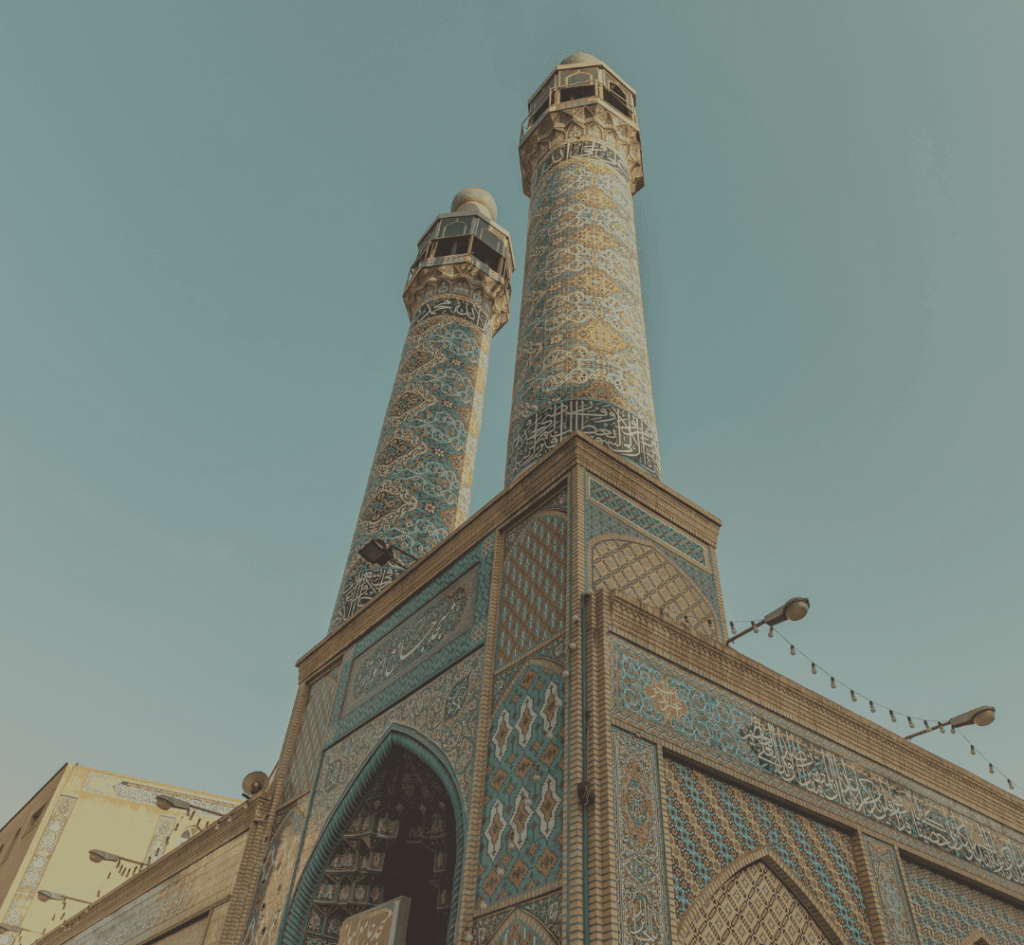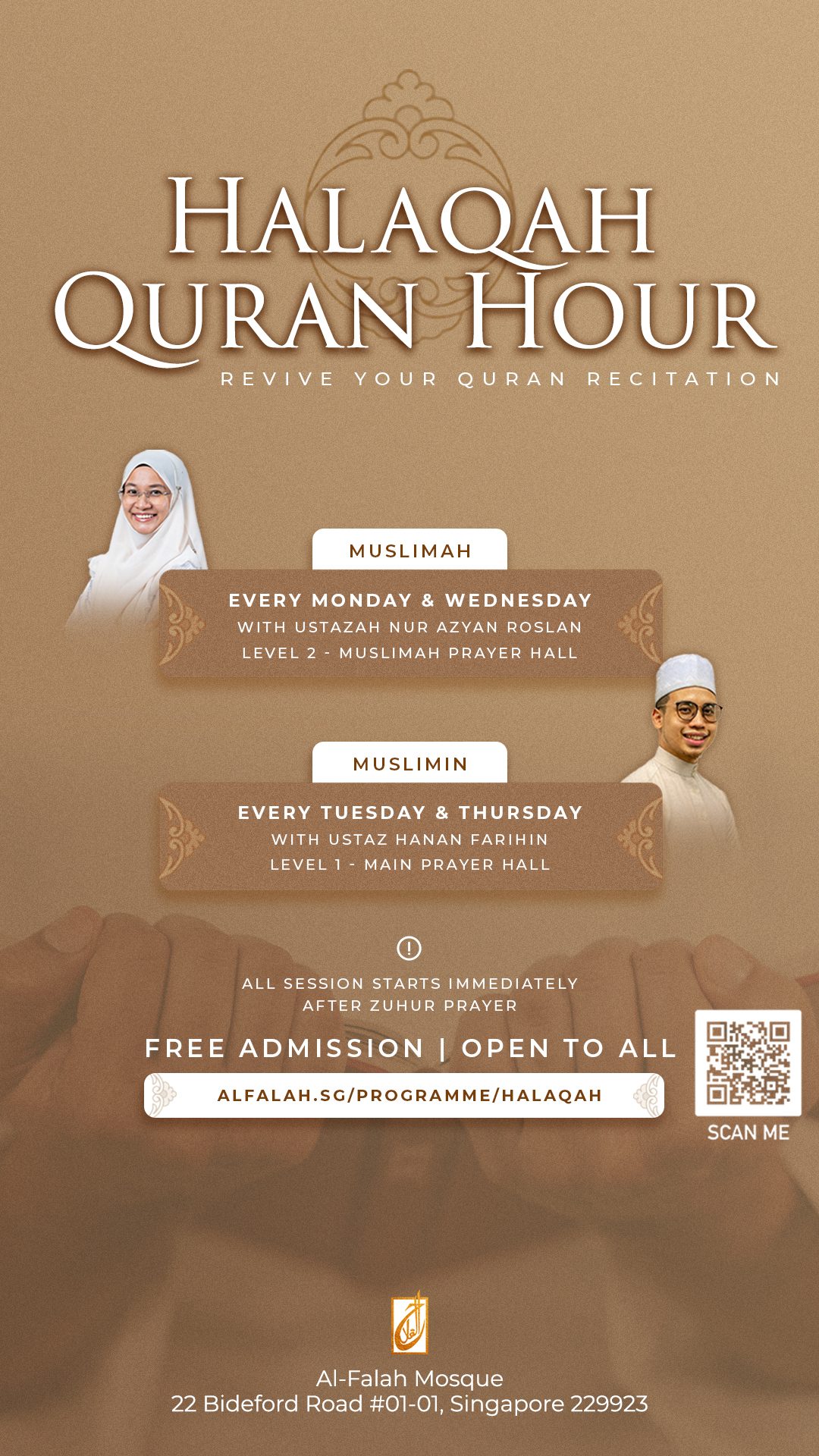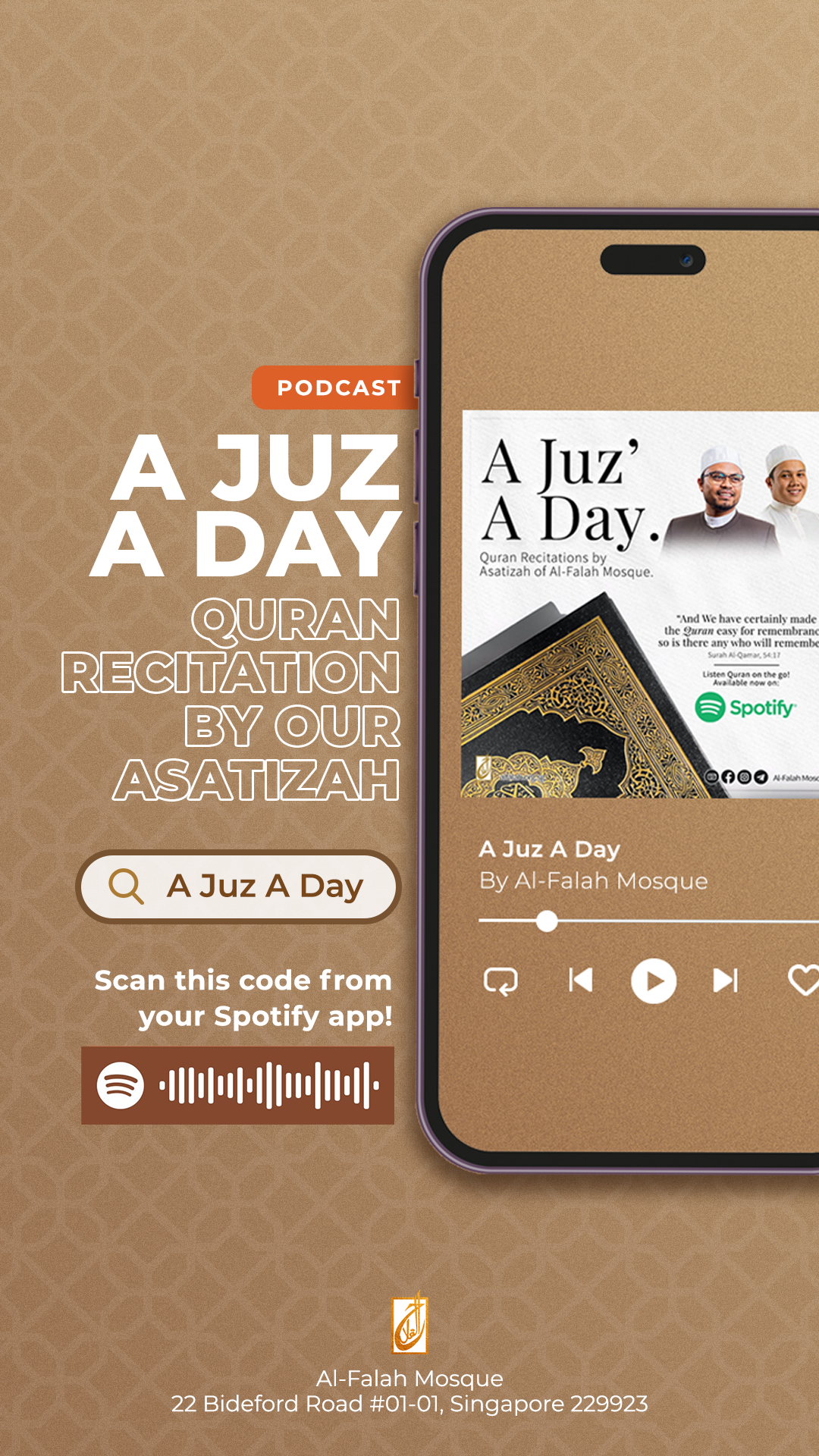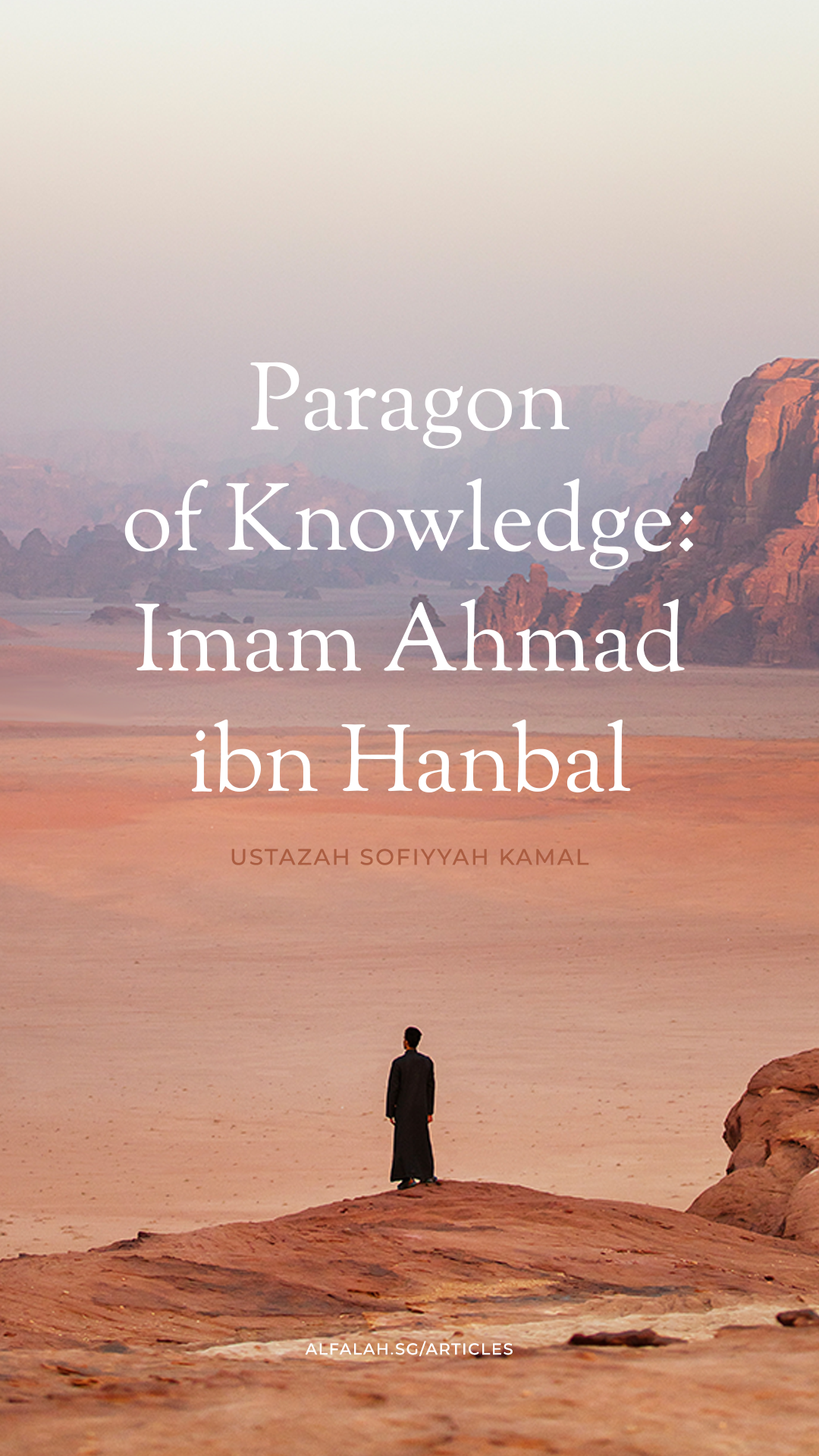Articles
The Importance of the Arabic Language for Everyone
- BY Ustazah Nurhani Rehan
- ON

Proficiency in a foreign language is always beneficial, as it serves as a gateway to understanding different cultures and gaining new knowledge.
A quick search for “learn Arabic Singapore” reveals a vibrant market with numerous businesses offering Arabic language classes catering to diverse audiences: adults, children, Madrasah students, non-Madrasah students, Muslims, and non-Muslims. This trend is further evidenced by the inclusion of Arabic courses within the language centers of prestigious universities like the National University of Singapore (Centre for Language Studies) and Nanyang Technological University (Centre for Modern Languages).
One might wonder why, in a multilingual nation like Singapore – where English, Malay, Tamil and Mandarin dominate the linguistic landscape – there is a growing interest in learning Arabic. Could it be its religious importance, the business opportunities it unlocks, or its cultural richness? The answer lies in a combination of all three.
For Muslims, the Arabic language holds a unique and profound significance. It is the language of the Quran, as emphasised in verse 2 of Surah Yusuf:
إِنَّا أَنزَلْنَاهُ قُرْآنًا عَرَبِيًّا لَّعَلَّكُمْ تَعْقِلُونَ
Indeed, We have sent it down as an Arabic Quran so that you may understand.
As a result, anyone who wishes to read the Quran independently will first need to learn Arabic and familiarise themselves with the Arabic letters and pronunciation. Learners often start by mastering the Arabic alphabet and distinguishing between each letter’s sound and shape. They then start reading basic words and phrases, and eventually are able to read Quranic verses. This foundational knowledge is crucial, as every unit or rak’ah of a prayer mandates the recitation of Surah Al-Fatihah.
When reading is accompanied with understanding, one can better internalise the meaning of Quranic verses. For instance, when a person recites Al-Fatihah in their daily prayers, understanding the chapter’s meaning – which includes praise for Allah, a plea for guidance, and a request for mercy – can transform the experience from a mere recitation to a heartfelt supplication.
How much more meaningful would daily prayers be if every word in Surah Al-Fatihah was understood, transforming a routine recitation into an intimate conversation with God?
When praying in congregation, especially when the Imam recites a chosen verse or Surah, understanding Arabic elevates the experience beyond simply appreciating the Imam’s recitation.
For instance, if the Imam recites Surah Yusuf, we can actively engage with the unfolding narrative of Prophet Yusuf’s life, rather than merely listening to a series of unfamiliar words. This transforms the experience from passive listening into an insightful and meaningful engagement with the Quran.
Understanding Arabic would also allow us to distinguish between verses containing supplications, promises of reward, and warnings – all of which carry a unique message and emotional weight. This deeper comprehension allows us to engage more fully with the recitation, enhancing their spiritual experience and connection to the text.
Beyond prayers and supplications, Arabic is the language of scholarship in Islam. The Quran, the Hadith (Prophetic traditions), and the vast corpus of Islamic literature, including works on jurisprudence, theology, philosophy, and history, are primarily written in Arabic. As a result, individuals who aspire to gain a deep understanding of Islam are expected to possess fluency in the Arabic language. This is evident in the curriculum of many local Madrasahs, where Arabic language instruction is central, and religious subjects are often taught in Arabic. Mastery of Arabic is the stepping stone to accessing and understanding intricate Islamic knowledge.
Far from being exclusive to Muslims, Arabic boasts over 450 million speakers worldwide, not including non-native Muslim speakers who are proficient in speaking and reading Arabic. Ranking as the fifth most spoken language in the world, Arabic is also one of the six official languages of the United Nations. Understanding Arabic allows individuals to engage more deeply with Arabic-speaking communities, fostering mutual respect and understanding.
For example, learning Arabic can help diplomats, aid workers, and international relations professionals build stronger and more respectful relationships with their counterparts in Arabic-speaking countries. When these professionals can communicate in Arabic, they are better able to navigate cultural nuances, avoid misunderstandings, and convey their messages more effectively.
This critical role is exemplified by the United Nations High Commissioner for Refugees (UNHCR) actively seeking Arabic speakers for their workforce. Recognizing the importance of clear communication in refugee camps across the world, UNHCR relies on Arabic-speaking staff to bridge communication gaps. This not only fosters trust with refugees but also ensures the accurate delivery of vital aid.
Furthermore, in the tourism sector, the ability to communicate and understand Arabic among tour guides and hotel personnel significantly enhances the travel experience for visitors from the Arab world, which encompasses 22 countries, including major economies like the Kingdom of Saudi Arabia, the United Arab Emirates, and Qatar.
According to the president of Malaysian Tourist Guides Council (MTGC), the ability to communicate and understand the Arabic language among tour guides and hotel personnel also has a profound positive impact on Arab travellers’ perceptions of Malaysia. Recognising this, countries like Malaysia and Korea are actively pursuing strategies to attract Middle Eastern tourists, acknowledging the significant economic potential of this high-value market.
As such, it is no surprise that many educational institutions offer Arabic language programmes tailored for specific purposes, such as business, medical, and tourism. These specialised courses equip learners with the vocabulary and cultural knowledge necessary to excel in particular fields. For example, business Arabic courses focus on terminology and practices relevant to commerce and trade, while medical programs prepare professionals to communicate effectively with Arabic-speaking patients, and tourism courses enable professionals to better serve Arabic-speaking travellers.
In conclusion, the Arabic language holds immense importance and offers numerous benefits for everyone, transcending religious contexts. It serves as a bridge to a vast and vibrant culture, fostering mutual respect and understanding between communities. From navigating the complexities of international relations to enriching the travel experience for Arabic-speaking tourists, understanding Arabic unlocks a wealth of opportunities in today’s globalised world. With its growing popularity in educational institutions and its increasing relevance across various sectors, Arabic presents itself as a valuable asset for personal and professional growth.
Given the numerous benefits of learning Arabic, from deepening one’s religious understanding to fostering global connections and unlocking professional opportunities, are you ready to take the first step to unlock the beauty of the Arabic language?
Disclaimer
Support Our Dakwah












